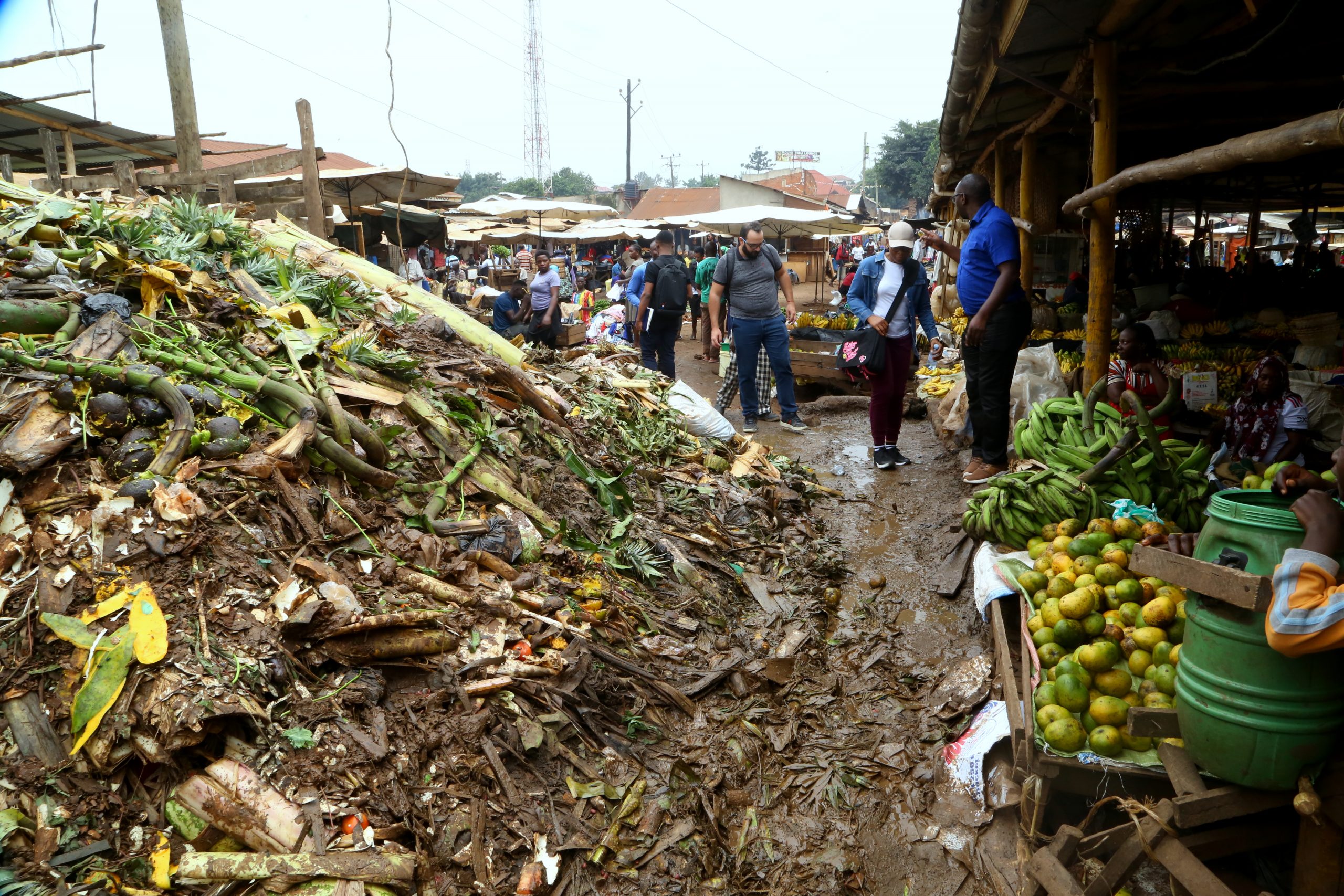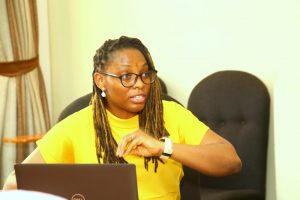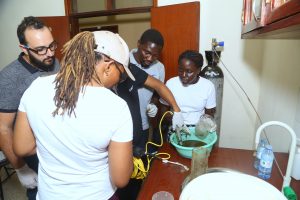
A project investigating green biohydrogen production from organic waste resources, seed-funded by WUN, is working towards enabling Low and Middle-Income Countries (LMIC) to increase access to affordable, reliable and sustainable energy.
Worldwide demand for hydrogen is expected to accelerate from 2030. Green hydrogen will play an important role in the clean energy transition but typically costs more to produce than ‘grey’ or ‘blue’ hydrogen.
The WUN-supported project aligns with governments’ Net Zero ambitions and plans for a just, inclusive energy transition. It investigated the use of organic waste to produce biohydrogen in LMIC, which can help lower the production cost. It involved four WUN members from universities in Uganda, Brazil and the UK[1]and an industry partner, Green Heat Uganda.
WUN researchers examined the practical use of biological (dark) fermentation technologies, which mimic the fermentation stages typical of an anaerobic digestion process. Anaerobic digestion systems are widely used in Uganda to produce biomethane, a low-cost and low-carbon fuel often used for household cooking and electrification. Over 30,000 digesters are installed in the country and organic materials including market waste can be used for biomethane production.

“We can harness our systems understanding from anaerobic digestion to optimise dark fermentation processes for biohydrogen recovery from organic waste. However, techno-economic issues like operating and maintenance know-how limit the long-term application and widespread adoption of anaerobic digestion,” says Dr Cynthia Okoro-Shekwaga of the School of Civil Engineering, University of Leeds, leader of the research team.
Further funding from UK Aid Direct/Ayrton Fund, part of Innovate UK’s £40 million Energy Catalyst programme, has been secured to help tackle techno-economic issues and scale the technology through the ‘BioCool’ project. Researchers will design an Energy as a Service (EaaS) business model for the application of biomethane (and subsequently biohydrogen) technology to power cold storage units. Within the model, technology providers will assume responsibilities for system operations including monitoring feeding cycles and servicing.
“The approach guarantees improved livelihoods for the rural population and provides them with enhanced access to reliable, affordable, and low-carbon fuel options,” adds Okoro-Shekwaga. The findings could also contribute to the longer-term sustainability of an integrated system for dark fermentation and anaerobic digestion (AD) technology.

Project researchers also collected and analysed data comparing the organic waste scope for Uganda and Brazil. “The data demonstrate how different the flows can be from different systems and inform the need to adapt systems to locally available resources,” says Okoro-Shekwaga. “We’ve also conducted laboratory experiments in Leeds, York and Uganda, comparing overall yields and resource flow performance in each locality using similar technology, feedstock and processes. Our results show we cannot adopt a one-size-fits-all approach; bioenergy policies must be adapted to different countries’ regional resources.”
Results will inform the Uganda government’s biohydrogen strategy. Okoro-Shekwaga delivered a workshop in Kampala on how to assess biohydrogen potentials for various categories of organic waste, using the low-cost methodology developed in the project: “It was pure joy when we recovered hydrogen gas from organic waste from Kalerwe market,” she adds. Representatives of Uganda’s Ministry of Energy and Mineral Development (MEMD) participated alongside Early Career Researchers (ECRs) from WUN member universities.
“I’m looking forward to seeing these ECRs push the frontiers of biohydrogen research in Low and Middle-Income Countries,” says Okoro-Shekwaga. “The whole world is talking about green hydrogen production. We’re trying to ensure that partners in developing countries can access biohydrogen options. By harnessing the vast reserves of organic waste, we can generate a renewable energy source which offers a sustainable and cost-effective solution for off-grid supply.”
What next?
- Sign up to the WUN newsletter to get the latest stories about our members’ research, three times per year.
- Watch video clips from Dr Okoro-Shekwaga’s workshop here
- For more information about the project click here
[1] University of Leeds, University of York, Makerere University, Universidade Federal de Minas Gerais